"Just join a gym," they said. "That's what we all do."
But running in Africa has always had a special place for me; in fact, it's the place that turned me into a runner--and eventually--a triathlete. So not only did I stick with it, I found a training group and signed up for IRONMAN South Africa.
The fact of the matter is, living and working overseas can be a lonely, isolating experience. If I hadn't chosen to stick with the activities that make up the fabric of who I am, it would have been even worse. So whether you're a fish out of water in Ethiopia or just missing your tri club on a long business trip, by recreating patterns of your home life, you can find fulfillment and a sense of belonging wherever you are.
Make new friends.
1 of 11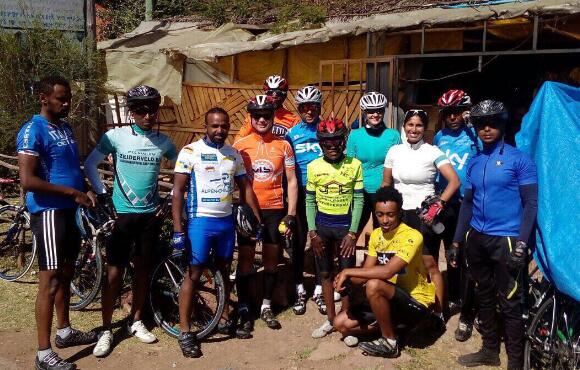
Living overseas can be lonely. Everyone left someone back home. Finding a group to train with gives you a social outlet, introduces you to locals and helps with those initial, awkward conversations.
About a week into my time in Ethiopia, I found the Wednesday Project, a group that meets every week to run sprints in Addis Ababa's temple of running, Meskel Square, a public gathering place. The group leader, a lawyer named Deena, and the group's founder, a peace and security expert named Lucy, introduced me to three more ex-pats—and a triathlon club was born. Plus, there's nothing like discussing peeing on the bike to bring you closer to people.
Find:
Your Next TriathlonMeet people from your hometown.
2 of 11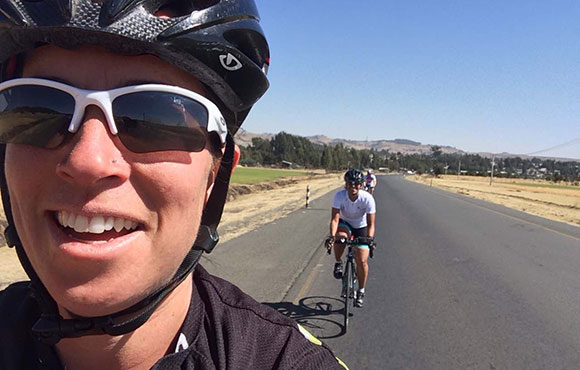
Ok, sure, New Yorkers are everywhere. But, Deena and I are also from the same cycling club and did the same NYC training program three years apart. The same loveable pharmaceutical rep taught us both how to corner, and we take comfort in kvetching about the lack of decent bagels on a daily basis.
Find:
Your Next TriathlonLearn the language.
3 of 11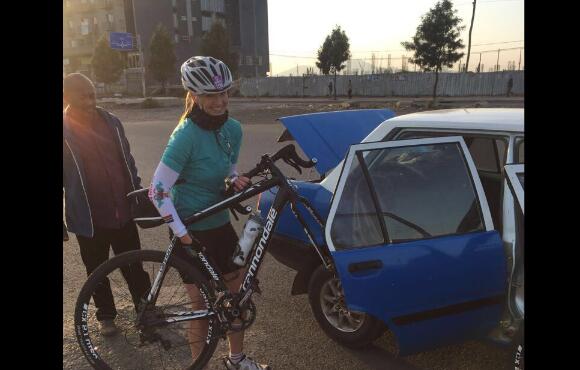
Amharic, the official language of Ethiopia, is hard. Like really hard. I finally figured out what "Addis Ababa" means when a fellow runner started pointing out all the "ababa" (flowers) on the mountain. Becoming familiar with local slang can come in handy, too—like when you're on your second flat of the day and trying to hail a taxi. If you see a blue and white four-door sedan, for example, you can bet it is a taxi—or more specifically, a Lada—a particular brand of 1980s car imported en masse from Russia and now commonly used as a taxi.
Find:
Your Next TriathlonLearn the culture.
4 of 11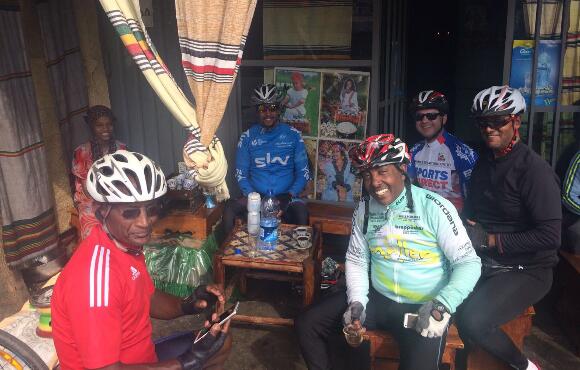
Ethiopia runs on its own clock. Literally. The clock starts at 7 a.m. (dawn), also known as 1 o'clock in local Ethiopian time, and then goes until 7 p.m, at which point it starts over. The calendar is off by 6 years and 8 months, so right now, it's 2009. Confusing, no?
Ethiopians also tend to be a little more patient than I'm used to. For example, sometimes rides are more about the journey; a 65-mile ride might include five coffee stops.
Moral of the story? Sometimes you simply have to learn it's ok to do things their way (it doesn't hurt that the coffee is really good).
Find:
Your Next TriathlonLearn to do without.
5 of 11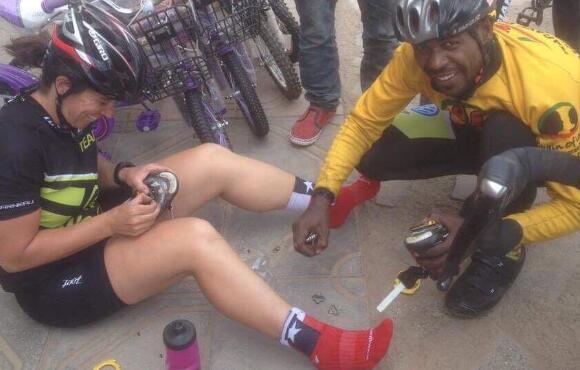
Shoes worn out? Garmin won't charge anymore? Tough luck.
At home, I'm all about the energy gels, salt tabs and fluid replacement mixes. My bike is carbon, and I have sweet kits that make me look fast. Here, I'm training on a cyclocross bike procured from another ex-pat and gulping down Coca-Cola when I can find it.
Meanwhile, the Ethiopians we ride with kick my butt on cheap hybrids and never seem to have a flat. The local runners in beat-up Chuck Taylors (if they're lucky) or flip-flops (if they're not) make it look like I'm standing still as I push as hard as I can through a sprint. It's a weekly lesson in humility.
Find:
Your Next TriathlonBecome intimate with your bicycle.
6 of 11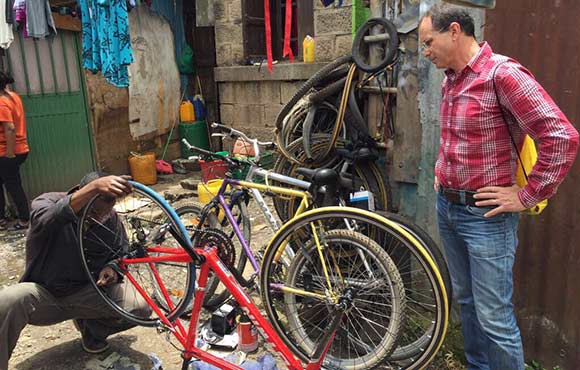
You know the grubby mechanic at your local bike shop who rolls his eyes every time you come in, but manages to make that weird squeak or click go away? Well, he probably didn't fit in your suitcase. In Addis, there's only one "bike doctor;" he's usually not available when you need him, and he only has a bike stand because we shipped one in for him.
Two months ago, another ex-pat, Megan, bought a new tri bike in South Africa. Since then, we've learned to replace a headset, adjust the gears and pack a bike into all forms of suitcases. We've switched out pedals without a wrench, rigged SPD cleats for road shoes and experimented with AB-80 in place of lube.
Find:
Your Next TriathlonFind something pretty.
7 of 11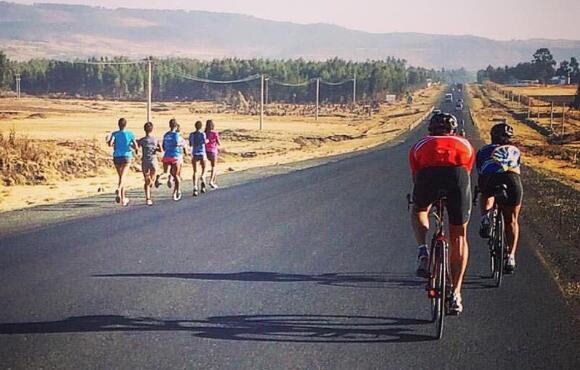
As ex-pats, we often live in cities. And not all cities are beautiful. In Addis, we spend a lot of time on Entoto Mountain to get above the smog and find some green. Training is a way to connect with nature in an unfamiliar place. Often the pools are in well-groomed outdoor settings; in Cape Town, for example, there's a 25-meter pool at the base of Table Mountain where ducks often paddle by as you swim. Even in Kuwait, which was ranked the worst place for expats in the latest Expat Insider survey, there's a whole group of triathletes who swim in the Persian Gulf.
Find:
Your Next TriathlonStay fit.
8 of 11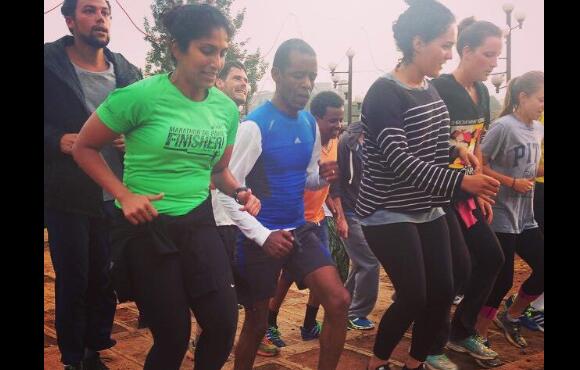
It's easy to put on a few pounds when you're trying out new cuisine or over-indulging on pizza because it reminds you of home. Training keeps the weight gain under control and gives you an excuse to say "yes" to one more dish you can't recognize.
Find:
Your Next TriathlonSee the country, learn the city.
9 of 11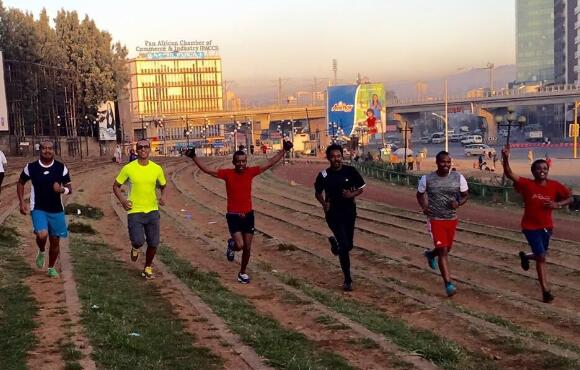
Running is my secret weapon for building a map in my head of every city I live in. Cycling expands that map a little further.
Find:
Your Next TriathlonBecause you did it at home.
10 of 11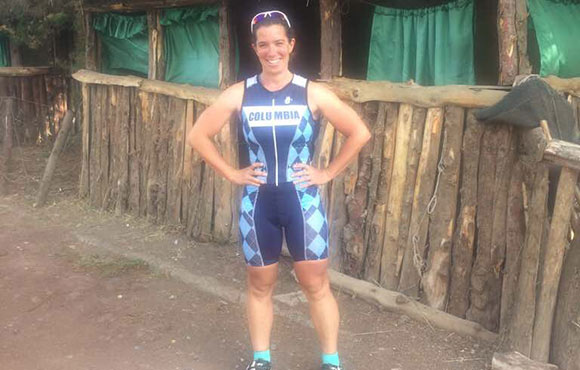
Living overseas changes you—sometimes for the better, sometimes not. We all have our reasons for committing to endurance racing, and for the 99 percent of us who will never end up on the podium, those reasons are incredibly personal. Training gets under your skin and becomes a part of who you are. There's something addictive about that voice booming from above, "You are an IRONMAN," as you cross the finish line of a 140.6.
You don't have to give that up—you don't have to give you up—just because you're living overseas.
Dr. Freda Ready is the Global Surgery Fellow at the University of Texas-Southwestern in Dallas, Texas. She is currently working in Addis Ababa, Ethiopia, and has completed eight half distance triathlons and one full IRONMAN.



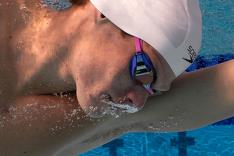

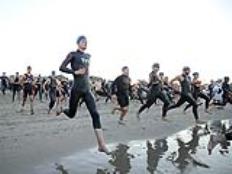
Discuss This Article